Blount’s devotion to Roman Catholicism and support of those loyal to the monarchy was evident in some of his definitions. An example is in the word “populace,” used by supporters of the Parliament. Blount defines it as “the Rascal people, base multitude, meaner sort of the vulgar.” In the context of Blount’s background, his comments about the current political turmoil in England cease to be innocuous.
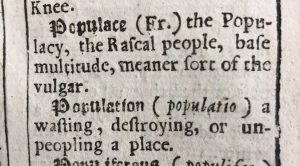
“Populace”- Thomas Blount, Glossographia 1661 edition
Blount’s personal beliefs can also be seen in words relating to religion. For example, he defined “conventicle” as “a little private Assembly, commonly for ill.”
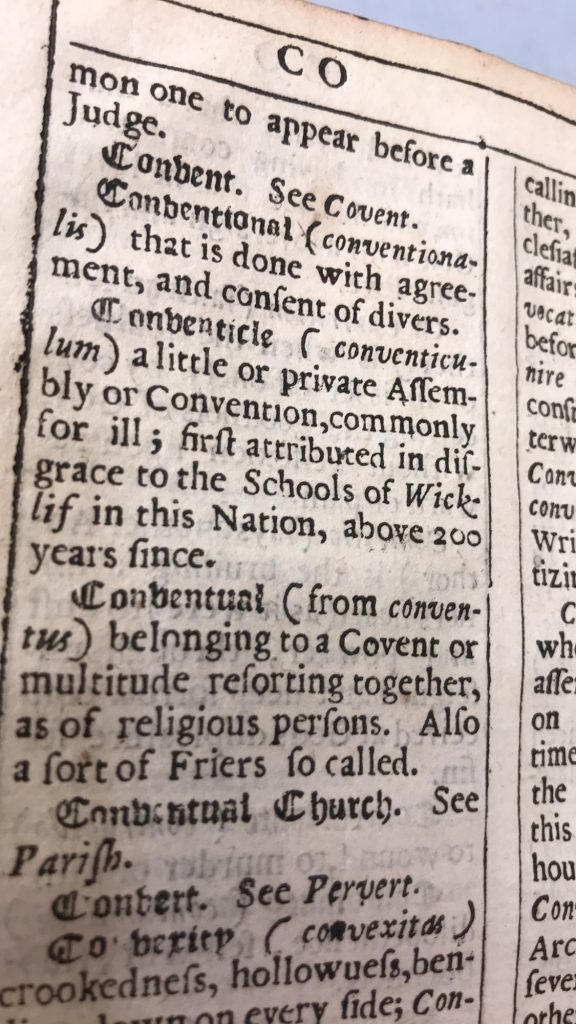
“Conventicle”- Thomas Blount, Glossographia 1661 edition
Glossographia was also the first dictionary to feature illustrations. Two coats of arms, both woodcuts of heraldic symbols, were illustrated under “Canton” and “Gyron.”
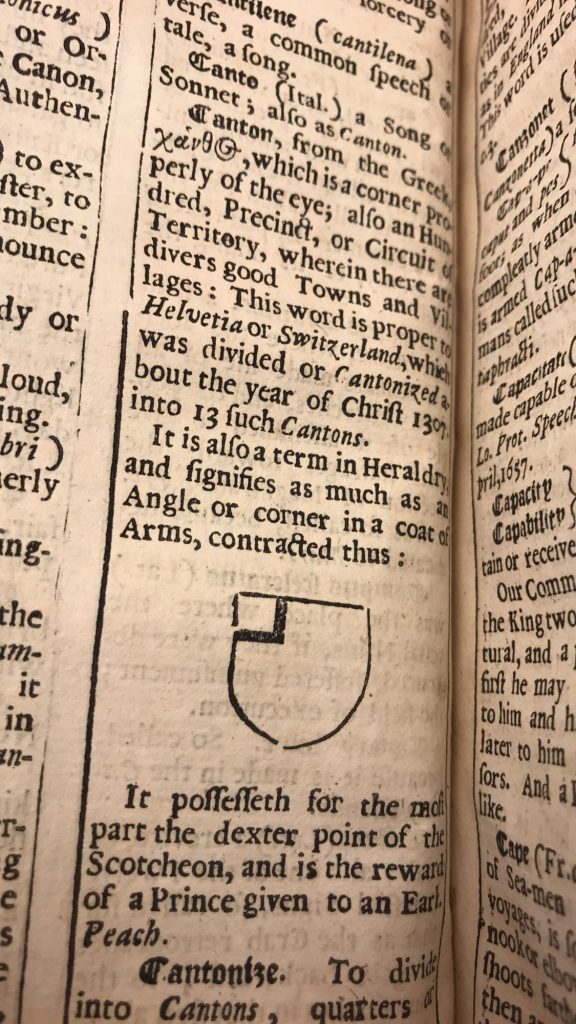
“Canton”- Thomas Blount, Glossographia 1661 edition
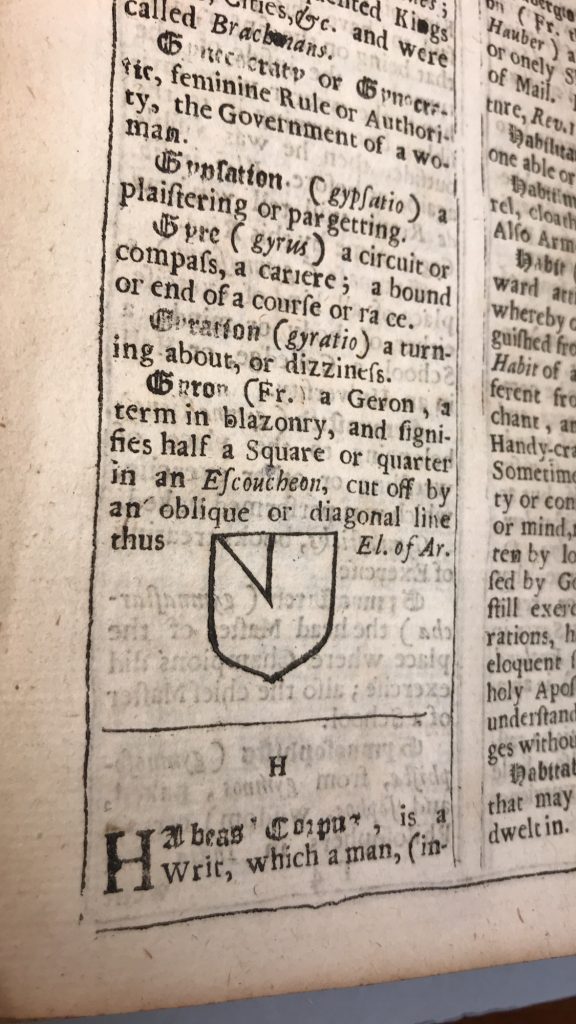
“Gyron”- Thomas Blount, Glossographia 1661 edition
In scholarly work about bear baiting, Blount’s passage is often cited. Blount says “Paris Garden is the place on the Thames Bankside at London, where the Beares are kept and baited; and was antiently so called from Robert de Paris, who had a house and garden there in Richard II’s time; who had by proclamation, ordained that the butchers of London should buy that garden for receipt of their garbage and entrails of beasts to the end the city might not be annoyed thereby.” This was a potential translation error on Blount’s part, because Paris Garden was not a public baiting place by 1393. This passage was not present in the first edition of Glossographia, but appeared in later editions.
Glossographia is also often cited as the first dictionary to recognize suicide, defined as “the slaying or murdering of himself.”
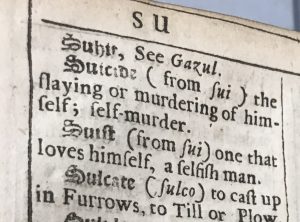
“Suicide”- Thomas Blount, Glossographia 1661 edition
Glossographia did contain a few “new” words that have not yet been recorded. For example, Glossographia contains the first recorded use of the word “euphemism.”
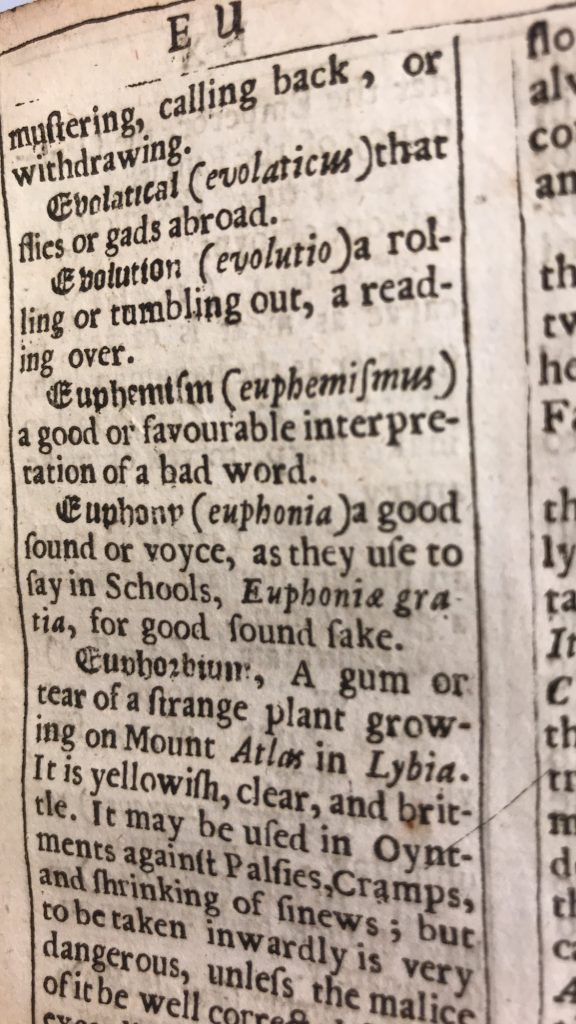
“Euphemism”- Thomas Blount, Glossographia 1661 edition
“let every ones Genius and the quality of the Subject they treat be their own Dictator”
-Thomas Blount on Glossographia
As mentioned in Working Methods, Blount referred to contemporary authors for words in which their use in the English language was highly contested, so that he would not be accused for inventing those words or even recommending their use. Such words include “lubrefaction,” defined as “making slippery” and used by Lord Bacon. Interestingly, this is also the last recorded instance of the word. Another word that cites Bacon is “sibilant.”
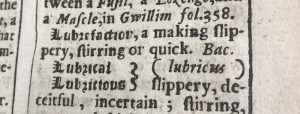
“Lubrefaction”- Thomas Blount, Glossographia 1661 edition

“Sibilant”- Thomas Blount, Glossographia 1661 edition
Other than Lord Bacon, Sir Thomas Browne is also frequently mentioned. Blount cites Browne for his definition of “locomotion.” Browne was responsible for its first recorded use. “Populosity,” which was defined as a version of “populousness” is another word that cites Browne. These words were all examples in which their foothold in the English language was tenuous. It is interesting how some became part of our everyday use, such as “sibilant” and “locomotion,” whereas others like “lubrefaction” have become obsolete.
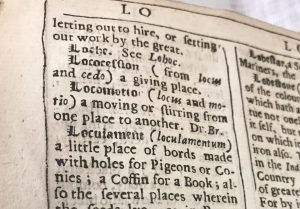
“Locomotion”- Thomas Blount, Glossographia 1661 edition
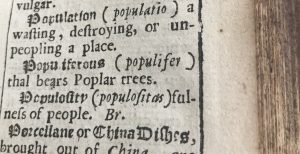
“Populosity”- Thomas Blount, Glossographia 1661 edition
Blount attempts to prevent word misuse by having his readers look up constitutes. For example, in his definition of “parallels,” he directs the reader to his definitions of: Equator, Tropic, Capricorn, Cancer, Hemisphere, Equinoctial, and Equidistantes. The interrelationship established by Blount provides a map of words, which provides the reader with context and promotes correct word-use. The definition of “parallels” is so lengthy that it spanned an entire column.
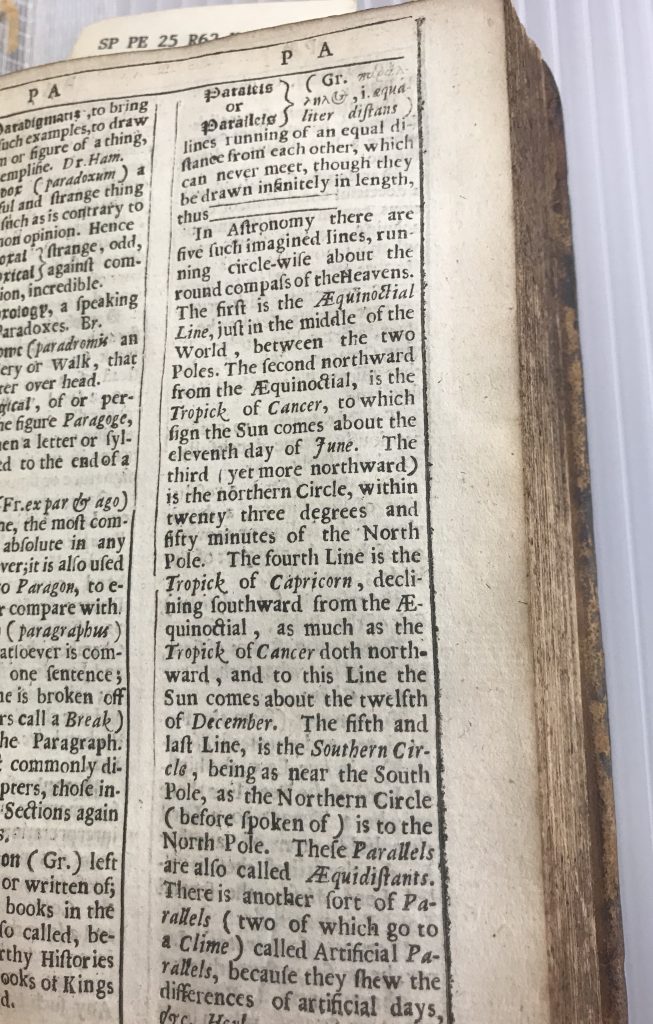
“Parallels”- Thomas Blount, Glossographia 1661 edition
In addition to authenticating definitions by citing prominent authors, Blount also more casually addresses the reader to point him or her towards further sources. For example, for the word “Palmeto Wine,” Blount wrote: “Palmeto Wine, is a sweet and pleasant juyce (like Muscadine or Allicant) coming from the Palmeto Tree in the Isle Mauritius. Herb tr. 210.”
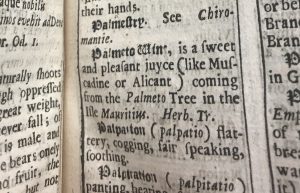
“Palmeto Wine”- Thomas Blount, Glossographia 1661 edition
On page 210 in Herbert’s Travels, there is an engraving showing the shape of the Palmeto palm, as well as further information.

Under the definition of Cockney, Blount tells a story to show a possible origin of the word: A boy and his father were riding on a horse out of London. The boy asked his father what kind of noise a horse makes. His father replied that the horse ‘neighs’. The boy knew nothing of the countryside, since he grew up in the city, so when he heard a cock crow, he asked his father “doth the cock neigh too?” Because of this, the boy becomes nicknamed “cock-neigh.”
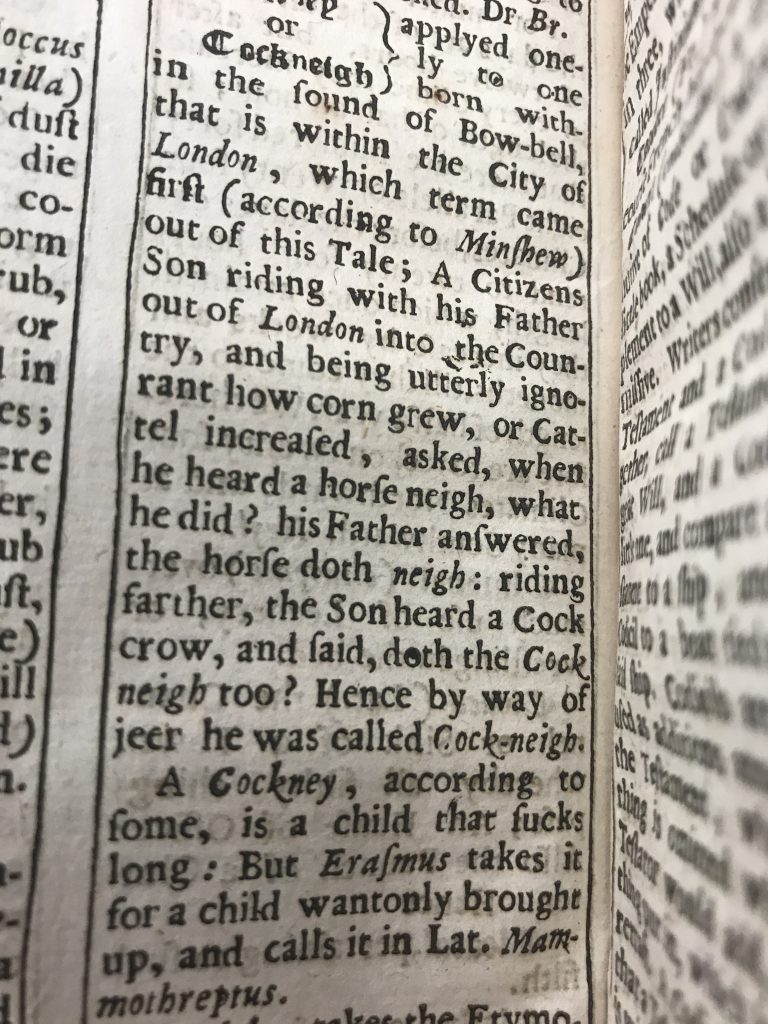
“Cockney/Cockneigh”- Thomas Blount, Glossographia 1661 edition
